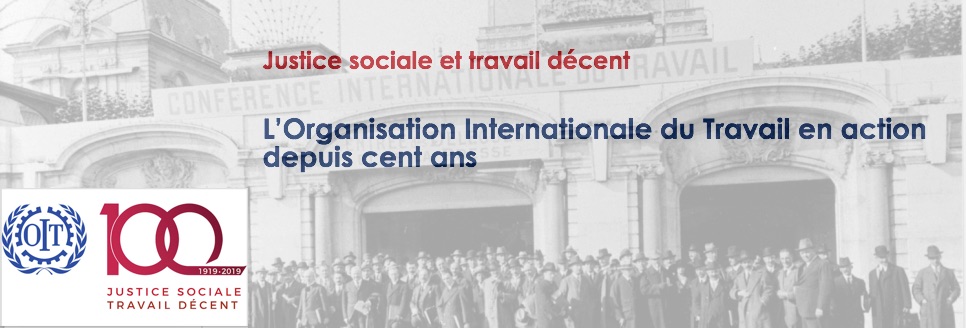Cette communication interroge les formes de mobilisation et d'investissement des juristes dans le travail normatif de l'OIT. Elle repose sur l'étude d'une association savante internationale, la Société Internationale du Droit du Travail et de la Sécurité Sociale (SIDTSS) qui se constitue au cours des années 1940-1950. Elle explore les relations nouées entre cette association et l'OIT et la contribution de cette association à la solidification d'un droit social international.
Au lendemain de la Seconde Guerre mondiale, le Bureau International du Travail, à travers certains de ses fonctionnaires proches des milieux universitaires, joue un rôle d'entrepreneur dans la constitution de la SIDTSS. Cette association internationale dédiée à la promotion du droit social réunit des juristes spécialistes de droit social de nombreux pays de part et d'autre du rideau de fer, et son aire d'influence s'étend progressivement aux pays du Sud. Cette association se donne un objectif tout à la fois scientifique et militant. Si ses responsables entendent contribuer à l'étude du droit du travail et de la sécurité sociale, ils entendent également faire de l'association et des formes de sociabilité savante qu'elle permet l'instrument d'une amélioration des standards sociaux.
Basée sur un travail d'archives au sein de l'OIT et d'autres organisations internationales (CECA, CEE) ainsi que sur l'étude de la littérature juridique de l'époque, cette communication éclaire la contribution de la SIDTSS et de l'OIT à la fabrique du droit social international après 1945. Après avoir rendu compte de l'importance de l'OIT dans la construction de la SIDTSS, elle met en évidence la manière dont les membres de la SIDTSS ont pu participer à établir le droit du travail en tant que discipline académique dans différents pays. La Société Internationale contribue, en effet, à la construction de la profession de juriste en droit social en fournissant des ressources matérielles et symboliques internationales aux acteurs nationaux. Ensuite, la communication décrit les formes de droit social international promues par la Société en relation avec le BIT. Les juristes internationalisés de la SIDTSS participent ainsi à la construction d'un droit social international dont les méthodes sont directement reprises par d'autres organisations internationales, à l'instar de la CECA et de la CEE, ce que la communication montre en étudiant les débats sur la spécificité du droit social européen.
The making of an international law. The contribution of the ILO to the internationalization of
social law after 1945
This presentation questions the forms of mobilization and involvement of lawyers in the ILO's normative work. It is based on the study of an international scientific association, the International Society for Labour and Social Security Law (ISLSS), which was established during the 1940s and the 1950s. It investigates the relationship between this association and the ILO and its contribution to the making of international social law.
After the Second World War, the International Labour Office, through some of its officials close to the academic circles, played an active role in the establishment of ISLSS. Dedicated to the promotion of social law, this international association gathered lawyers specialized in social law from numerous countries on both side of the Iron Curtain, and its influence extended progressively to the southern countries. The objectives of this association were both scientific and political. While its leaders intended to contribute to the study of labour law and social security, they also intended to use their knowledge and the association for improving social standards.
Based on the study of the ILO's archives and other international organizations (ECSC, EEC) and on a review of legal literature of the time, this presentation sheds light on the contribution of the ISLSS and the ILO to the making of international social law after 1945. It first puts in evidence the importance of the ILO in the creation of the ISLSS and the role of the latter in establishing labour law as an academic discipline in different countries. Indeed, the members of the International Society contributed to the construction of the profession of social lawyer by providing international material and symbolic resources to national lawyers. Then, the communication explains the specific forms of international social law which are promoted by the Society in relation to the ILO. By questioning the specificity of European social law, this presentation shows that the methods employed by the ISLSS's lawyers for creating international social law were also used by other international organizations, such as the ECSC and the EEC.

 PDF version
PDF version
